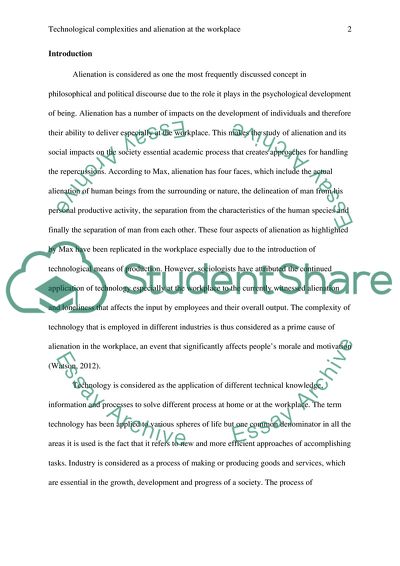Cite this document
(Assess how far the complexity of the technology employed in an Essay, n.d.)
Assess how far the complexity of the technology employed in an Essay. https://studentshare.org/sociology/1807563-assess-how-far-the-complexity-of-the-technology-employed-in-an-industry-is-the-prime-cause-of-alienation-in-the-workplace
Assess how far the complexity of the technology employed in an Essay. https://studentshare.org/sociology/1807563-assess-how-far-the-complexity-of-the-technology-employed-in-an-industry-is-the-prime-cause-of-alienation-in-the-workplace
(Assess How Far the Complexity of the Technology Employed in an Essay)
Assess How Far the Complexity of the Technology Employed in an Essay. https://studentshare.org/sociology/1807563-assess-how-far-the-complexity-of-the-technology-employed-in-an-industry-is-the-prime-cause-of-alienation-in-the-workplace.
Assess How Far the Complexity of the Technology Employed in an Essay. https://studentshare.org/sociology/1807563-assess-how-far-the-complexity-of-the-technology-employed-in-an-industry-is-the-prime-cause-of-alienation-in-the-workplace.
“Assess How Far the Complexity of the Technology Employed in an Essay”. https://studentshare.org/sociology/1807563-assess-how-far-the-complexity-of-the-technology-employed-in-an-industry-is-the-prime-cause-of-alienation-in-the-workplace.


